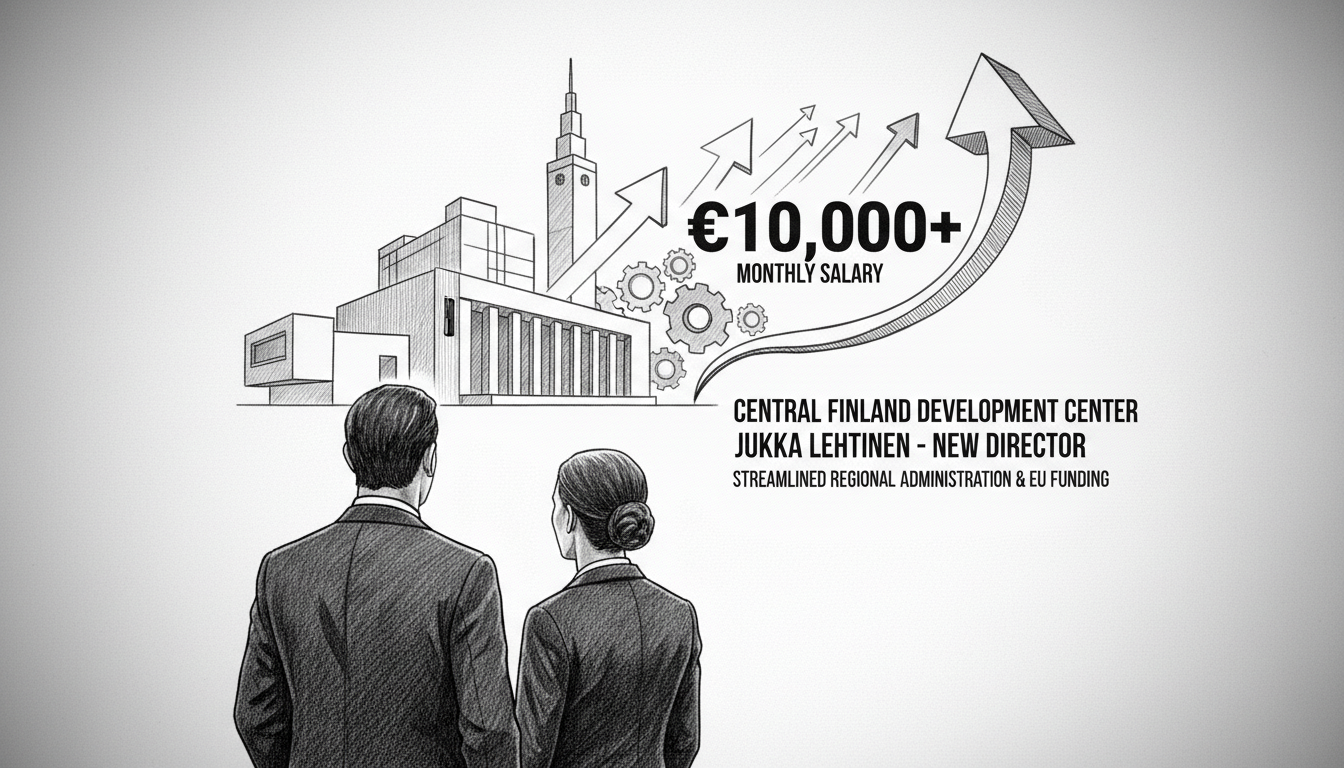Finland's regional administrative restructuring continues with Jukka Lehtinen appointed as director of Central Finland's new development center. His monthly salary exceeds 10,000 euros, reflecting the position's significant regional responsibilities. Lehtinen will serve a five-year term beginning in December with preparatory work before his official January start date.
The appointment represents Finland's ongoing transition from fifteen ELY centers to ten regional development centers nationwide. This administrative reform aims to streamline regional development functions across the country. The consolidation process has generated considerable debate within Finnish political circles about regional governance efficiency.
Central Finland's development center will coordinate regional business services, employment initiatives, and environmental administration. These centers operate under Finland's Ministry of Economic Affairs and Employment framework. They implement both national policies and European Union regional development objectives.
Lehtinen's substantial compensation package aligns with similar leadership positions in Finnish regional administration. Such salaries reflect the complex coordination required between municipal, national, and EU-level development funding. The director must navigate Finland's multi-level governance structure while addressing regional specificities.
Finnish regional development centers now carry increased responsibility for implementing EU cohesion policy funds. These centers manage significant portions of Finland's European Regional Development Fund allocations. Their directors must demonstrate expertise in both Finnish administrative law and EU funding regulations.
The appointment timing coincides with Finland's broader public administration reform agenda. Recent governments have pursued efficiency gains through administrative consolidation. This particular restructuring began several years ago with parliamentary approval across party lines.
Central Finland's development challenges include maintaining regional competitiveness amid demographic shifts. The area faces typical Finnish regional development issues like population aging and urban-rural balance. The new director must address these while coordinating with nearby regions like Pirkanmaa and Northern Savonia.
Regional development centers represent Finland's commitment to balanced national development. They function as key implementation bodies for both national and EU regional policy objectives. Their directors occupy crucial positions within Finland's public administration hierarchy.
This administrative model reflects Nordic traditions of strong regional governance institutions. Similar structures exist in Sweden and Norway with regional development responsibilities. Finland's approach emphasizes technical expertise and cross-municipal coordination.
The salary level has drawn some public commentary given ongoing discussions about public sector compensation. Such positions require balancing political expectations with technical administration demands. Directors must maintain neutrality while implementing elected officials' policy priorities.

